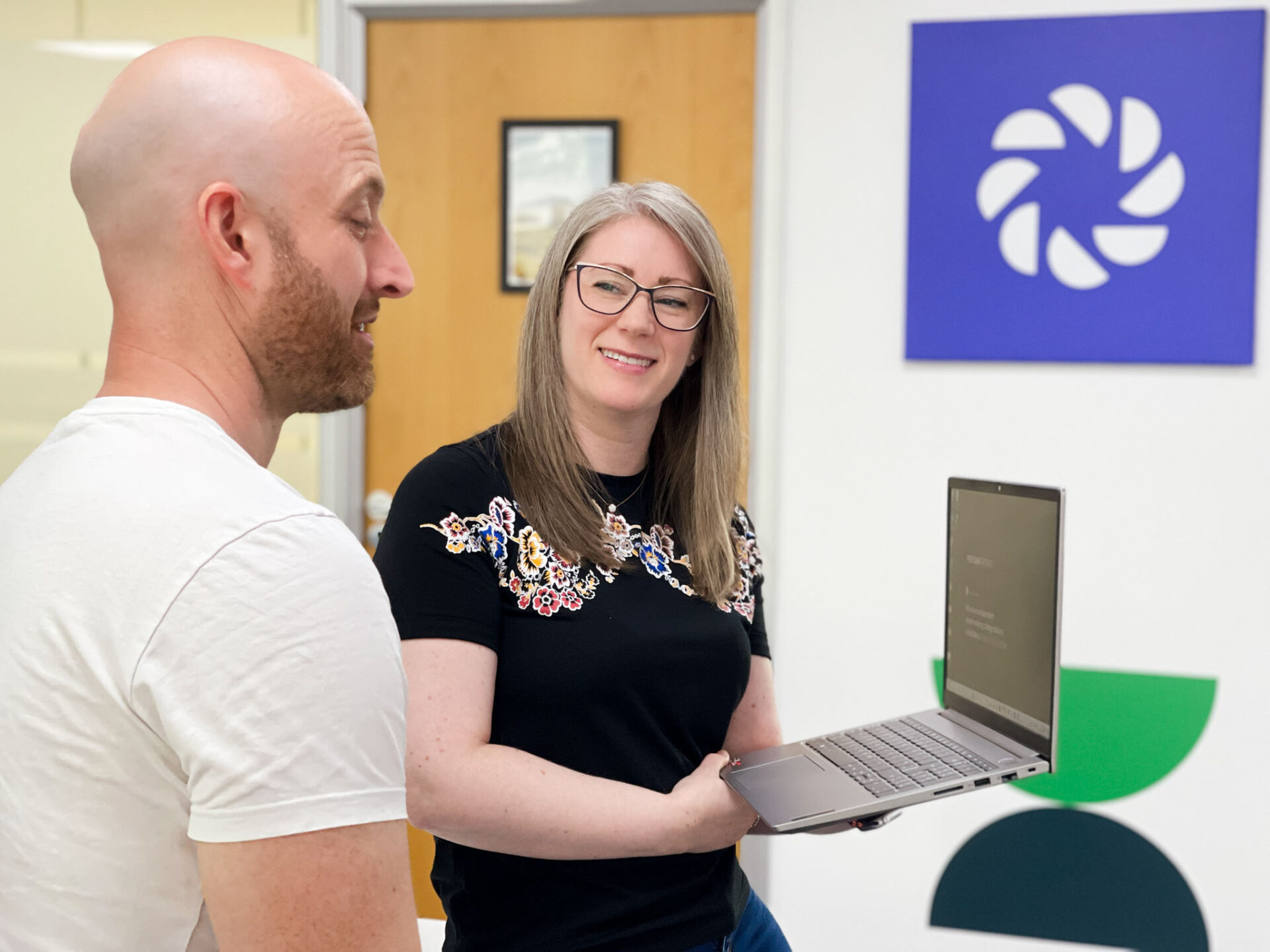Building Resilient Teams: The Power of EQ in the Digital Age

Imagine two teams working through a major system upgrade. One team adapts with ease, its members collaborating effectively and embracing the new technology with enthusiasm. Meanwhile, the other team struggles, their morale declines, and progress stalls. The difference isn’t down to their skills or resources, but in how they handle change.
As Peter Drucker famously said, “Culture eats strategy for breakfast.” Even the most well-thought-out strategies can fail if the company culture doesn’t promote adaptability and emotional intelligence. This is why fostering a culture of empathy, collaboration, and resilience is essential during transformation.
Business Leaders should focus on the very heart of their organisation – its people, those who drive the change and those affected by it. Without their engagement, no transformation can truly succeed.
Understanding Emotional Intelligence
When navigating periods of transformation, it’s clear that building resilient teams requires more than just hard, technical skills – it demands a focus on psychological safety and mental well-being. By embedding emotional intelligence into leadership and team management, leaders can foster an environment where their teams feel safe to express themselves, manage stress, and adapt to change. This, in turn, strengthens team resilience.
Unlike IQ, which measures our cognitive abilities, EQ focuses on the ability to recognise, understand and manage our emotions, and respond appropriately to the emotions of others. This skill set is not linked to our IQ; instead, it is a separate, learnable ability that plays a vital role in personal and professional success.
Developing Emotional Intelligence in the Workplace
The good news is that emotional intelligence can be developed and strengthened over time, much like any other skill.
EQ consists of five key components: self-awareness, self-regulation, motivation, empathy, and social skills. These elements shape how we manage stress, connect with others, and navigate challenges in complex environments. For instance, a tech team may have advanced system implementation skills, but if they experience challenges managing stress or adapting to change, productivity is likely to suffer. Higher and more balanced EQ can enable them to stay calm under pressure, empathise with team members, and motivate themselves during adversity – a key factor in resilient teams.
In hybrid environments, leadership often requires a balance between IQ and EQ. Leaders with high emotional intelligence can motivate teams, manage resistance to change, and create a psychologically safe space where innovation thrives. A Forbes article emphasised that digital transformation is “80% EQ and 20% IQ,” as soft skills are essential for managing the human side of business change.
Here are some strategies to enhance your EQ:
- Practise Self-Awareness: Take time to identify and reflect on your emotions, how they affect your decision-making, and how they influence team dynamics. Regular retrospectives, as seen in Agile practices, can bring teams together to identify emotional triggers during project sprints.
- Cultivate Empathy: In large-scale digital transformations, empathy helps you to tune into the fears and challenges your teams face. By fostering open communication and listening to concerns, you can offer support that reduces resistance to change.
- Improve Self-Regulation: In high-pressure environments, such as fast-moving tech teams, the ability to regulate emotions is essential. Techniques like active listening and pausing before you respond or using mindfulness can help you manage stress and prevent burnout.
- Exercise Your Social Skills: Strong interpersonal relationships are crucial in cross-functional teams, especially when remote or hybrid working is involved. Building rapport and having a healthy debate about conflict constructively improves collaboration, even across virtual platforms.
Keep Motivation Up: During challenging times, maintaining motivation is critical for long-term success. Aligning personal and team goals with organisational objectives helps maintain focus and drive, even in turbulent periods of change. Remember to celebrate all successes, no matter the size!
Bringing the Human Element into the Digital World
Automation and AI are extremely helpful but they can occasionally cause us to overlook the human element. It’s our emotional intelligence – our empathy, understanding, and interpersonal connections with our teams that distinguish us. Leaders and teams that cultivate EQ can integrate this human touch into even the most technical environments, whether in day-to-day communication or larger project management initiatives.
For instance, during virtual meetings, understanding and managing non-verbal cues or potential communication breakdowns becomes crucial. Teams that rely solely on technical skills may miss the nuances of interpersonal dynamics, but those with strong EQ can better navigate virtual environments, ensuring collaboration and productivity remain intact.
So, while IQ may get you through the door, it is emotional intelligence that will help you build lasting relationships, lead effectively, and navigate the complexities of the digital world. By developing EQ and other crucial skills, you can ensure that you not only survive but thrive in today’s fast-paced, technology-driven environment.
About the author:
Kristy Dean, Head of People & Culture at Perform Partners, is a fervent lifelong learner. She brings her rich experience from both business-to-business and consumer-facing environments. She has collaborated with cross-functional and global teams in digital start-ups and iconic brands like Kodak and BT. Kristy’s certification as an EQ-i 2.0 & EQ360 Practitioner amplifies her ability to foster environments where individuals and teams can reach their full potential. Her approach is grounded in the belief that every individual is unique and valuable, challenging conventional thinking and nurturing a culture of inclusivity and high performance.

